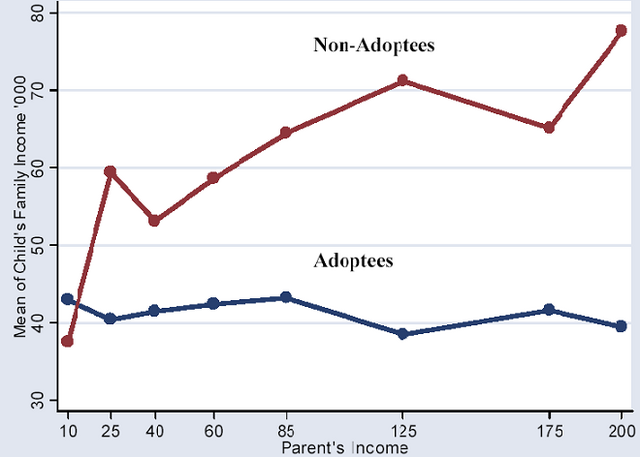
To the extent that this generalizes, it leaves pointless all sociological theorizing about the social transmission of income.
The paper does find some parent-to-child social transmission for educational attainment and whether or not a person drinks, but none for height (no surprise there) or obesity and BMI (calling into question popular views on how parents influence their children's body weight later in life by shaping eating habits). The results for smoking are inconclusive.
The Marginal Revolution post which is the pointer for this illustrates the general rule that the quality of comments declines once you tackle a nature-nurture topic. With that in mind, if you wish to comment, consider whether you should have a look at the paper first.
Added: At MR, commenter Bill writes: "Parents income at the time of adoption? Hmmm. A number of college educated couples will have low income at the time of adoption and higher income during the child's gradeschool and highschool development. I wish the axis were average adult income over the child's school years." That's a fair point.
1 comment:
My concern is with the generalizability of the adoptee's family income since 70% of the Korean adoptees were girls. Perhaps the girls who were adopted by rich American families are more likely to be housewives or part-time workers or unmarried than the ones adopted by people of lower social class.
Post a Comment